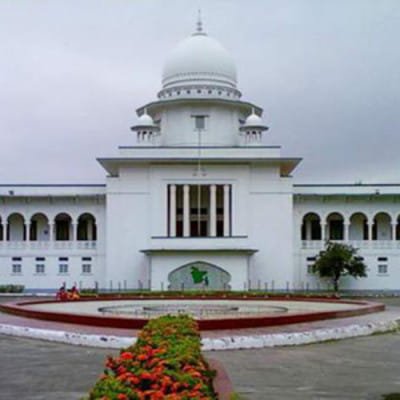HC questions legality of Section 57

The High Court today questioned the legality of the much-talked-about Section 57 of Information Communication and Technology (ICT) Act.
The court issued a rule upon the government to explain in four weeks as to why the section should not be declared unconstitutional.
The secretaries to the ministries of ICT, home and information have been made respondents to the rule.
The bench of Justice Moyeenul Islam Chowdhury and Justice Md Ashraful Kamal passed the order following a petition moved by eleven eminent citizens challenging the legality of the provision that has drawn criticism from different quarters of the society.
The section goes against the constitutional provision of freedom of expression and equality before law and right to life, petitioner's counsel Jyotirmoy Barua told the court during hearing.
He said the section concerned has been created in the light of India's ICT Act, which the neighbouring country's Supreme Court later found unconstitutional. The section was scrapped on March 24 this year.
"Therefore, Section 57 of the ICT Act of Bangladesh should be abolished," he argued.
Deputy Attorney General Motahar Hossain Sazu defended the section and said that a separate bench of the High Court scrapped a similar writ petition on Sunday while another bench is scheduled to hear a similar petition tomorrow.
In this situation, this writ petition filed by 11 citizens should not be moved, he argued.
Now there is no legal bar in application of the Section 57 since the High Court has not yet stayed its application, the deputy attorney general told The Daily Star.
The 11 petitioners are: Dhaka University teachers Ahmed Kamal, Gitiara Nasreen, Fahmidul Haque, Tanzimuddin Khan and Samina Lutfa and former DU teacher Akmal Hussain, Jahangirnagar University teacher Anu Muhammad, Bam Morcha (left alliance) leader Abdus Salam, singer and writer Arup Rahi, writer Rakhal Raha and Biplobi Workers' Party General Secretary Saiful Huq.

 For all latest news, follow The Daily Star's Google News channel.
For all latest news, follow The Daily Star's Google News channel. 



Comments